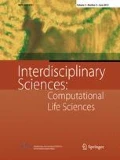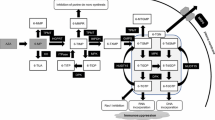Abstract
Thiopurine methyltransferase (TPMT) is a cytoplasmic transmethylase present in both prokaryotes and eukaryotes. In humans, it shows its presence in almost all of the tissues, predominantly in liver and kidney. TPMT is one of the important metabolic enzymes of phase II metabolic pathway and catalyzes methylation of thiopurine drugs such as azathioprine, 6-thioguanine and 6-mercaptopurine, which are used to treat patients with neoplasia and autoimmune disease as well as transplant recipients. In this sense, TPMT acts as shield against toxic effect of these drugs. Pharmacogenomic studies revealed that genetic polymorphism in TPMT is responsible for variable and, in some cases, adverse drug reaction. Those human groups who carry variants of TPMT (i.e., \(TPMT*3A\), \(TPMT*3C\), \(TPMT*2\)) are at high risk, because they are unable to metabolize thiopurine drugs thus becoming a weakness of patients against these drugs. Keeping in the mind the importance of TPMT, this review discusses the existence and distribution of various TPMT variants throughout different ethnic groups and risk of adverse drug reactions to them, and how they can avoid this risk of side effects. The review also highlighted factors responsible for variable reactions of TPMT, how this TPMT polymorphism can be considered in drug designing process to avoid toxic effects, designing precautions against them and more importantly designing personalized medicine.

Similar content being viewed by others
References
Ma Q, Lu AY (2008) The challenges of dealing with promiscuous drug-metabolizing enzymes, receptors and transporters. Curr Drug Metab 9(5):374–383
Rooseboom M, Commandeur JN, Vermeulen NP (2004) Enzyme-catalyzed activation of anticancer prodrugs. Pharmacol Rev 56(1):53–102
Jancova P, Anzenbacher P, Anzenbacherova E (2010) Phase II drug metabolizing enzymes. Biomed Pap Med Fac Univ Palacky Olomouc Czech Repub 154(2):103–116
Nelson EB, Raj PP, Belfi KJ, Masters BS (1971) Oxidative drug metabolism in human liver microsomes. J Pharmacol Exp Ther 178(3):580–588
Goldstein DB (2005) The genetics of human drug response. Philos Trans R Soc Lond B Biol Sci 360(1460):1571–1572
Katara P (2014) Single nucleotide polymorphism and its dynamics for pharmacogenomics. Interdiscip Sci Comput Life Sci 6:85–92
Kumar A, Purohit R (2012) Computational screening and molecular dynamics simulation of disease associated nsSNPs in CENP-E. Mutat Res 738–739:28–37
Tidd DM, Paterson AR (1974) A biochemical mechanism for the delayed cytotoxic reaction of 6-mercaptopurine. Cancer Res 34:738–746
Evans WE (2004) Pharmacogenetics of thiopurine S-methyltransferase and thiopurine therapy. Ther Drug Monit 26(2):186–91
Pavlovic S (2009) TPMT gene polymorphisms: on the doorstep of personalized medicine. Indian J Med Res 129(5):478–480
Evans WE, Johnson JA (2001) Pharmacogenomics: the inherited basis for interindividual differences in drug response. Annu Rev Genomics Hum Genet 2:9–39
Krynetski E, Evans WE (2003) Drug methylation in cancer therapy: lessons from the TPMT polymorphism. Oncogene 22(47):7403–7413
Salavaggione OE, Wang L, Wiepert M, Yee VC, Weinshilboum RM (2005) Thiopurine S-methyltransferase pharmacogenetics: variant allele functional and comparative genomics. Pharmacogn Genom 15(11):801–815
Chang JG, Lee LS, Chen CM, Shih MC, Wu MC, Tsai FJ, Liang DC (2002) Molecular analysis of thiopurine S-methyltransferase alleles in South-east Asian populations. Pharmacogenetics 12(3):191–195
Collie-Duguid ES, Pritchard SC, Powrie RH, Sludden J, Collier DA, Li T, McLeod HL (1999) The frequency and distribution of thiopurine methyltransferase alleles in Caucasian and Asian populations. Pharmacogenetics 9(1):37–42
Hiratsuka M, Inoue T, Omori F, Agatsuma Y, Mizugaki M (2000) Genetic analysis of thiopurine methyltransferase polymorphism in a Japanese population. Mutat Res 448(1):91–5
Hon YY, Fessing MY, Pui CH, Relling MV, Krynetski EY, Evans WE (1999) Polymorphism of the thiopurine S-methyltransferase gene in African–Americans. Hum Mol Genet 8:371–376
Kham SK, Tan PL, Tay AH, Heng CK, Yeoh AE, Quah TC (2002) Thiopurine methyltransferase polymorphisms in a multiracial Asian population and children with acute lymphoblastic leukemia. J Pediatr Hematol Oncol 24:353–359
Desire S, Balasubramanian P, Bajel A, George B, Viswabandya A, Mathews V, Srivastava A, Chandy M (2010) Frequency of TPMT alleles in Indian patients with acute lymphatic leukemia and effect on the dose of 6-mercaptopurine. Med Oncol 27(4):1046–1049
Umamaheswaran G, Kumar DK, Adithan C (2014) Distribution of genetic polymorphisms of genes encoding drug metabolizing enzymes and drug transporters - a review with Indian perspective. Indian J Med Res 139(1):27–65
Seki T, Tanaka T, Nakamura Y (2000) Genomic structure and multiple single-nucleotide polymorphisms (SNPs) of the thiopurine S-methyltransferase (TPMT) gene. J Hum Genet 45(5):299–302
Otterness D, Szumlanski C, Lennard L, Klemetsdal B, Aarbakke J, Park-Hah JO, Iven H, Schmiegelow K, Branum E, O’Brien J, Weinshilboum R (1997) Human thiopurine methyltransferase pharmacogenetics: gene sequence polymorphisms. Clin Pharmacol Ther 62(1):60–73
Tai HL, Krynetski EY, Schuetz EG, Yanishevski Y, Evans WE (1997) Enhanced proteolysis of thiopurine S-methyltransferase (TPMT) encoded by mutant alleles in humans (TPMT*3A, TPMT*2): mechanisms for the genetic polymorphism of TPMT activity. Proc Natl Acad Sci U S A 94(12):6444–6449
Krishnamurthy P, Schwab M, Takenaka K, Nachagari D, Morgan J, Leslie M, Du W, Boyd K, Cheok M, Nakauchi H, Marzolini C, Kim RB, Poonkuzhali B, Schuetz E, Evans W, Relling M, Schuetz JD (2008) Transporter-mediated protection against thiopurine-induced hematopoietic toxicity. Cancer Res 68(13):4983–4989
Chouchana L, Narjoz C, Beaune P, Loriot MA, Roblin X (2012) Review article: the benefits of pharmacogenetics for improving thiopurine therapy in inflammatory bowel disease. Aliment Pharmacol Ther 35(1):15–36
Eklund BI, Moberg M, Bergquist J, Mannervik B (2006) Divergent activities of human glutathione transferases in the bioactivation of azathioprine. Mol Pharmacol 70(2):747–754
Katara P (2013) Role of bioinformatics and pharmacogenomics in drug discovery and development process. Netw Model Anal Health Inf Bioinf 2(4):225–230
Rutherford K, Daggett V (2008) Four human thiopurine s-methyltransferase alleles severely affect protein structure and dynamics. J Mol Biol 379(4):803–814
Appell ML, Berg J, Duley J, Evans WE, Kennedy MA, Lennard L, Marinaki T, McLeod HL, Relling MV, Schaeffeler E, Schwab M, Weinshilboum R, Yeoh AE, McDonagh EM, Hebert JM, Klein TE, Coulthard SA (2013) Nomenclature for alleles of the thiopurine methyltransferase gene. Pharmacogn Genom 23:242–248
Dingemanse J, Appel-Dingemanse S (2007) Integrated pharmacokinetics and pharmacodynamics in drug development. Clin Pharmacokinet 46(9):713–737
Tang W, Lu AY (2009) Drug metabolism and pharmacokinetics in support of drug design. Curr Pharm Des 15(19):2170–2183
Harrigan GG, Yates LA (2006) High-throughput screening, metabolomics and drug discovery. IDrugs 9(3):188–92
Prakash C, Sharma R, Gleave M, Nedderman A (2008) In vitro screening techniques for reactive metabolites for minimizing bioactivation potential in drug discovery. Curr Drug Metab 9(9):952–964
Glickman SW, McHutchison JG, Peterson ED, Cairns CB, Harrington RA, Califf RM, Schulman KA (2009) Ethical and scientific implications of the globalization of clinical research. N Engl J Med 360:816–823
Acknowledgments
The authors acknowledge the Center of Bioinformatics, University of Allahabad, India for support.
Author information
Authors and Affiliations
Corresponding author
Ethics declarations
Conflict of interest
There is no conflict of interest.
Rights and permissions
About this article
Cite this article
Katara, P., Kuntal, H. TPMT Polymorphism: When Shield Becomes Weakness. Interdiscip Sci Comput Life Sci 8, 150–155 (2016). https://doi.org/10.1007/s12539-015-0111-1
Received:
Revised:
Accepted:
Published:
Issue Date:
DOI: https://doi.org/10.1007/s12539-015-0111-1




